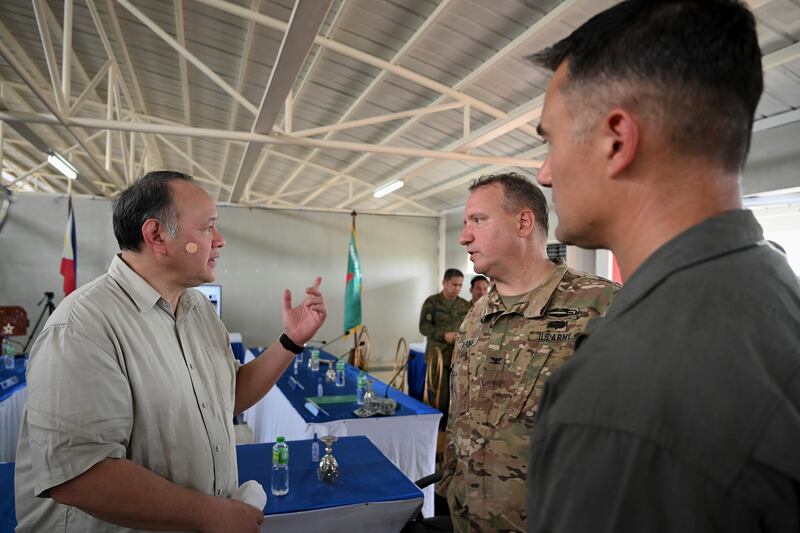Wary of potential security breaches, the Philippines defense chief this week ordered all military and department personnel to stop using artificial intelligence apps to create personal portraits online, according to a memo seen by BenarNews.
The memorandum, dated Oct. 14 and signed by Defense Secretary Gilberto Teodoro Jr., cited concerns about identity theft through artificial intelligence (AI). His office confirmed the document’s authenticity.
In it, Teodoro wrote that “all DND [Department of National Defense] and AFP [Armed Forces of the Philippines staff] personnel are directed to refrain from using AI photo generator applications and practice vigilance in sharing information online.”
A trending online digital application that uses AI and requires users to submit at least 10 photos of themselves to generate an enhanced portrait “poses significant privacy and security risks,” Teodoro said.
The application compiles a user’s data by creating a digital persona that mimics how a real person speaks and moves, he said.
“This seemingly harmless and amusing Al-powered application can be maliciously used to create fake profiles that can lead to identity theft, social engineering, phishing attacks, and other malicious activities,” Teodoro said.
Cybersecurity expert Ashley Acedillo, a former soldier and member of the Philippine House of Representatives, said the measure was necessary and timely.
“If somebody can create a fake video of a person having access to sensitive material, confidential matters, that’s a major concern,” he told BenarNews.
People who sign up to such AI applications and accept their terms are basically allowing the apps “unlimited surveillance and monitoring” of users, he said.

Philippine authorities had earlier reported cases of cyberattacks against government institutions during the past month, including the lower house of Congress this week. The Philippine Health Insurance Corporation and the Philippine Statistics Authority have also been targeted recently.
On Thursday, Philippine military chief Gen. Romeo Brawner told foreign correspondents that the armed forces were looking to set up a new cybersecurity command and hire more IT experts to combat the threat of cyberattacks.
He said the military had come under attack “almost daily” from both local and foreign hackers, although he declined to specify from which country. He said that hackers had managed to leak “old files” and non-sensitive documents from the military’s servers two years ago.
Globally, malicious cyberattacks by state and non-state actors are a growing problem, forcing countries and corporations to invest in defensive capabilities, according to the Philippine Institute of Cybersecurity Professionals.
Several AI image-generating apps, such as “90s yearbook trend” that uses the EPIK app to generate “retro photos,” have been flooding social media platforms recently, most of them on Facebook.
In March this year, an AI-focused magazine based in the United States, Analytics Insight, highlighted the potential for AI image generators to be misused in the creation of deceptive content, contributing to the rapid dissemination of online disinformation.
The California-based magazine said that AI image generators, like nearly all technology, can be abused by malicious actors.
"Malicious actors" can use the data uploaded into AI image generators to create fake but realistic-looking social media profiles to scam people. Scammers can also use AI to create realistic images and solicit donations when devastating natural disasters strike, according to the article by Analytics Insight.
Jeoffrey Maitem contributed to this report from Davao City, southern Philippines.
